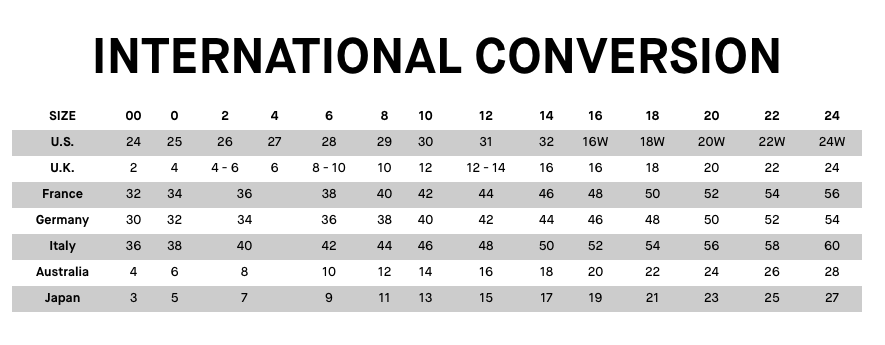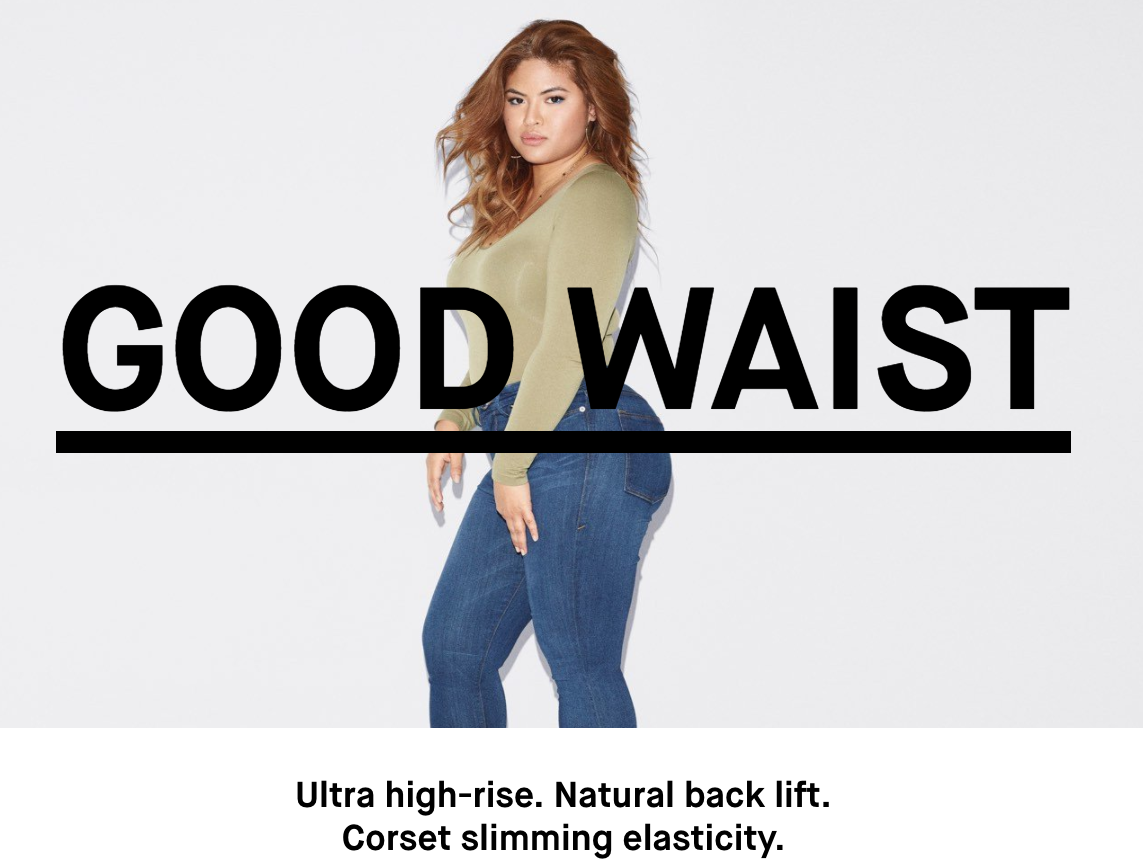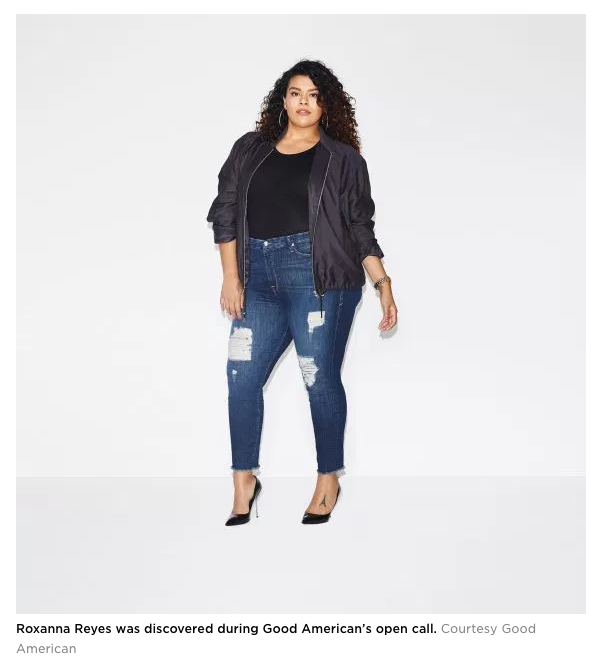Good Grief: The Secret to the Super Successful Kardashian Denim Line isn’t Just in the Name Behind the Brand
We all know the Kardashian name is full of controversy, fillers and your favorite rapper/athlete. But that’s not all the name is known for. In addition to the glitz and glam, the family has managed to solidify an empire through savvy business skills and their limelight addiction.
To put it plainly, the name Kardashian sells... from their boutiques, social media presence, brands and long running show... one thing that cannot be denied is that the Kardashians know how to make money.
The most recent accomplishment of the third Kardashian sister, Khloe, truly lives up to her last name (for the sake of this article she is a Kardashian we will not debate this).
With the help of business partner Emma Grede, Khloe’s denim line ‘Good American’ hauled in over $1million on its launch day back in October. The launch was noted to be ‘the biggest in history’ for a denim brand, genuinely ‘breaking the internet’.
The secret to the success of the ’Good American’ is two fold and maybe not as obvious as you think.
First Let's State the Obvious...
Influence
Co-founder Khole is a Kardashian and as a top influencer with over 59.7m followers on Instagram alone, it can be assumed that a large percentage of the line was already sold before it ever hit production.
Having a top influencer always leads to great sales and brands implement influencer marketing strategies to create fashion frenzies… These collaborations are extremely successful for the brand as well as for fashion aficionados.
Specific Influence
Khloe isn’t just ANY influencer. Let’s consider her place in the Kardashian family. Khloé is often referred to, ironically enough, as the “real one”. Known to be more relatable and down to earth compared to her sisters.
She has also battled weight issues openly, changing size and shapes over the years and welcoming open dialogue about body positivity.
Coming across as ‘real’ and being part of a discussion on ‘weight’ or ‘body positivity’ makes her the prime candidate to be the face of the brand.
The Not So Obvious
The second part of the equation is not as obvious to the industry, but is in-fact very simple and equally important as having a ‘super influencer’.
The key to the success of Good American, beyond the launch is in their ability to listen to their customers. Much of the genius behind the brand can be credited to co-founder Emma Grede, CEO of ITB.
Good American responded to the needs of its intended customers, solving problems that denim lovers have complained about for years all related to fit, function, style and representation:
The Issues Solved
Design and functionality must work hand in hand in order to attract and appease the modern consumer. Good American is ahead of the game because they identified each problem their specific consumers had with denim and solved it through design.
Size: The first issues solved by Good American is the issue of limited sizes and size quality. Good American offers sizes 0 to 24 with consistent “quality” as the pattern is graded up.
Often, larger sizes of clothing lose form and shape due to pattern makers inability to understand how the body grows and moves with added weight.
3D body scanning and proper fit analysis can easily solve this problem. The sizing for Good American denim is based on dress sizes so ones size is easily identifiable and larger sizes are not put off into a separate category ( plus size) isolating them from the rest of consumers. Proper understanding of shape and a woman's body helps to create better fitting clothing..duh.
Comfort : Comfort has also been a huge issue with denim. Crotch length, stretch, softness and ease of movement are all issues women have with denim.
The athleisure trend has made it difficult for women to leave leggings and yoga pants without comparable comfort.
‘Good American’ address comfort concerns boasting being made with a material that is stretchable and as comfortable as sweatpants. Because women still love a great pair of jeans, the comfort factor is a major selling point.
Functionality: The jeans are not just good to look at, they are functional as well. Good American allegedly has ‘corset slimming at waist’ enhancements.
For the average fit model, this enhancement may not be needed. But for the people actually purchasing the denim, functionality and structure has long been missing from denim which is why so many women chose to opt out for high waist leggings.
Social media provided some insight on the how incorporating the corset structuring was a great idea. A simple hashtag search revealed its relevancy:
Instagram Tags:
Which is why it is hard to imagine that designers aren't using various fit models for their design process.
Your fit models should reflect your actual and not intended consumers. There is enough data available to gather this information and make necessary changes.
I cannot stress enough how important it is to incorporate 3D body scanning and 3D design software into the design room. Fit issues can be readily solved this way!
The (real or fake) waist to hip ratio know as "the gap": “The gap” occurs when your waist to hip ratio has a larger than normal drop ( smaller waist larger hips or rear).
Many women who have natural (or enhanced rears) understand that regular denim leaves a gap in the back of the pant.
This issue is in the actual design of the garment. Good American solves this problem by adding a ‘Natural Backlift’. A simple pattern adjustment that has solved years of humiliation and discomfort. #mindfulness
Wardrobe friendliness: The denim styles are based on the latest trends that work for a majority of wardrobes.
Making items that many people can buy and rotate into their wardrobe is a key for high sales volume.
Fast fashion may not build loyalty but quality keeps customers coming back. We get that fast fashion companies can respond to trend but women around my age (28) also need quality staple items and a functional wardrobe based on a combination of style and trend.
Relatability: Last but not least the most notable thing Good American did to build relatability with their intended customer was to include real life representations of their customer and not just fashion models.
This is a completely different type of influencer marketing that fashion brands seem to neglect. Use your own consumers to promote your products.
Customers like to interact with customers, this is why reviews work so well. Consumers want to trust and hear from other consumers and not just the brand.
Plus a simple way to influence fit ( as my study showed) is to allow the customers to see items on bodies similar to their own.
Now the issue Good American solves isn’t new, but the solution is. Khloe and her partner, Grede are doing what most brands either cannot afford to do or simply won’t do: give consumers exactly what they want.
I recently wrote a post on the power of private labeling and the private label boom in the 1980’s which is responsible for our current fashion titans.
The success of the labels was fueled by research targeting consumers’ lifestyles.
Back then there was limited data points to consider, but today we have twice as many data points to get a more in-depth view on consumer lifestyles and behaviors that should be incorporated in design and e-commerce.
Good American best strategy was filling a void, listening to consumers and offering a product that functions well and fits better than others.
If there’s anything brands can learn from the line, it’s that fit and functionality matter. Retailers and designers should focus more on collecting valuable data about their consumers and creating pieces that are wanted and useful.
Fashion is still a business… and with the power being in consumer's hand it's best that the new designers who seek to dominate the industry simple listen to their customers and solve their problems. You don't have to be a Kardashian to have a successful business but you do have to stay on point.
I conducted a two part in-store and in person study at Cornell University on denim online sales, fit perception in the virtual world and purchase decision motivations among current consumers. The study addressed how to develop consumer archetypes based on data and how to take that information and channel it into better UX and design experiences. To get a copy of the study email me directly!





